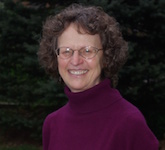Clara E. Hill earned her Ph.D. at Southern Illinois University in 1974. She started her career in 1974 as an Assistant Professor in the Department of Psychology, University of Maryland and is currently still there as a Professor. She has been President of the Society for Psychotherapy Research, Editor of the Journal of Counseling Psychology, and Co-Editor of Psychotherapy Research. Awards include the Leona Tyler Award (Society of Counseling Psychology), the Distinguished Psychologist Award (Division 29 of the American Psychological Association), the Distinguished Research Career Award (Society for Psychotherapy Research), and the Outstanding Lifetime Achievement Award (Section on Counseling and Psychotherapy Process and Outcome Research, Society for Counseling Psychology). Her major research interests are helping skills, psychotherapy process and outcome, training therapists, dream work, and qualitative research. She has published 187 journal articles, 67 chapters in books, and 11 books (including Helping Skills, Dream Work in Therapy, Insight in Psychotherapy, Transformation in Psychotherapy, and Consensual Qualitative Research). She is married, with two children and one grandchild.
David Van Nuys, PhD
Creator/Host of Shrink Rap Radio

Replies
Hi, I am a new member. This was the first radio show I chose and thank you for such a refreshing environment for learning and discourse. I thoroughly enjoyed what Ms. Hill had to say about the whole subject of dreamwork from this perspective.
Of course, dreamwork isn’t for everyone, for the reasons she stated. Active Imagination and artistic expression are good for the same things. I kept a dream journal for several years, slanted toward lucid dreaming training, before I set out to learn the concepts of depth psychology. Looking back with a fresh point of view, I was able to reap the rewards of the data collection I had amassed.
Continuing in this vein, I’ve had some more real deep experiences as I’ve tried to become more connected and responsive to the symbolic language of the unconscious. Also, I have periods when everything settles down, as Ms. Hill commented. I think the unconscious will contact a person when something comes up! My journal is more sporadic, in the sense that I do not religiously keep a journal; I journal the experience that changes my knowledge or piques my interest in a direction which I want to go. If it seems to be an archetypal dream or contains important motifs that I don’t understand yet, I’ll enter it, hoping that information will be more relevant over several dreams, as is common.
As I have shifted from a strictly lucid dreaming perspective to a wider one including more data mining from a highly conscious observational standpoint, I have learned a lot from my dreams. What I don’t understand is why such important experiential knowledge is not discussed, or at least not so candidly, among the more psychologically educated community. I get that it is more important to understand dreams and their purpose in an overall sense, but lucidity is probably the most genuine, natural experience I have ever had.
Hi Randy,
Thanks for weighing in with your experiences. I hope you'll explore the site at www.shrinkrapradio.com. You'll find a lot of information there, as here, relevant to your interests. Well, there are lots of people interested in Lucidity. I agree that it is one of the most dramatic phenomena in the world of dreaming. Many of those who track their dreams, however, seem to find other facets of their dreamworld more compelling for wisdom and personal growth. At least, that's my impression.
David
Thank you for this. I just heard Clara Hill's wonderful presentation at the recent IASD Conference in Berkeley. Her work is invaluable to putting dreamwork on the as a viable and effective intervention in the field of clinical psychology. I am grateful for this interview and for Clara Hill.
Thank you, Eva!
David